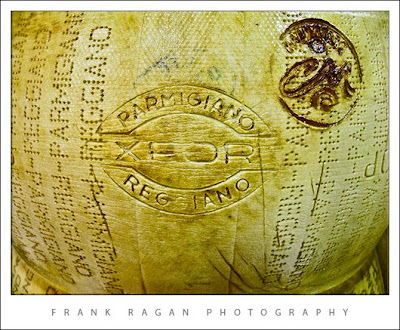Resolution not revolution!

One doesn't need to be a big cheese to understand the meaning of resolution in digital photography. Resolution is an essential concept to master for anyone dealing with digital images. I know lots of people who tell me that they use the setting on their digital camera that gives them the capability of saving maximum images on their flash card. If your goal is maxing the number of images on your card, this is a good option for you. If you are only going to place small images on the web or attach them to emails, it is probably okay, too. If you ever want to make an 8x10 or 16x20 inch print, you may run into problems.
On my Canon Power Shot G9, I can record a small file of 640x480 pixels. This will put a huge number of photos on a flash card. It will make good images for the web to about 6.5 inches x 5 inches. It will make a good print up to about 2.7 inches x 2 inches. I guess this is okay for a wallet sized photos.
If you wish to make larger prints, you don't need a camera with more mega pixels, you need to capture enough pixels to meet the needs of your output. This matching of needs in digital photography is normally expressed in pixels per inch (ppi) or pixel density. Each output requires a specific density of pixels, a particular number of pixels per inch. A web output may require 72 to 100 ppi while an 8x10 photo may require 300 to 360 ppi. So, don't set your camera's capture size to maximize the number of images captured; set your camera for the amount of information needed for your output.
More tomorrow.


The danger of over loading pixels to the output, I'd imagine, is having a lot of mb should you ever want to send or post as a digital file -- is that right?
ReplyDeleteAny other reasons to avoid pixel gluttony?
Bert....Bert Ducks
Yes, Bert you are correct on that point. There is another reason to avoid the gluttony. If you send too large a file to be posted on a site like Blogger, Facebook, etc, their software will reduce the pixel content of your image to meet their operating requirements. They need only a relatively small amount of info to display your image. If you provide too much info in the form of pixels, the excess will be removed by whatever software algorithm they use. I normally prefer to remove the pixels myself so that I can see if there is some slight change to the image to be posted.
ReplyDeleteHow did Facebook turn out for you? I never went there to see your stuff because I think I would have to register and I'm an intensely private person.
ReplyDeleteEspecially after .... the accident.
Ducks....Bert Ducks
Facebook is an interesting phenomenon. Yes, you do need to sign up. It could be stressful and frightening for a chap like you. It is not a blog or a web site. It is kind of a bulletin board for "friends" to share stuff about what's going on. You can limit the access of who can see your Facebook site. I think it is interesting, but the jury is still out.
ReplyDeleteIt's that whole social networking craze! I suspect you may find your kids have an account on Facebook, too. That may be reason enough not to sign up. Think it over, Bert...Bert Ducks.